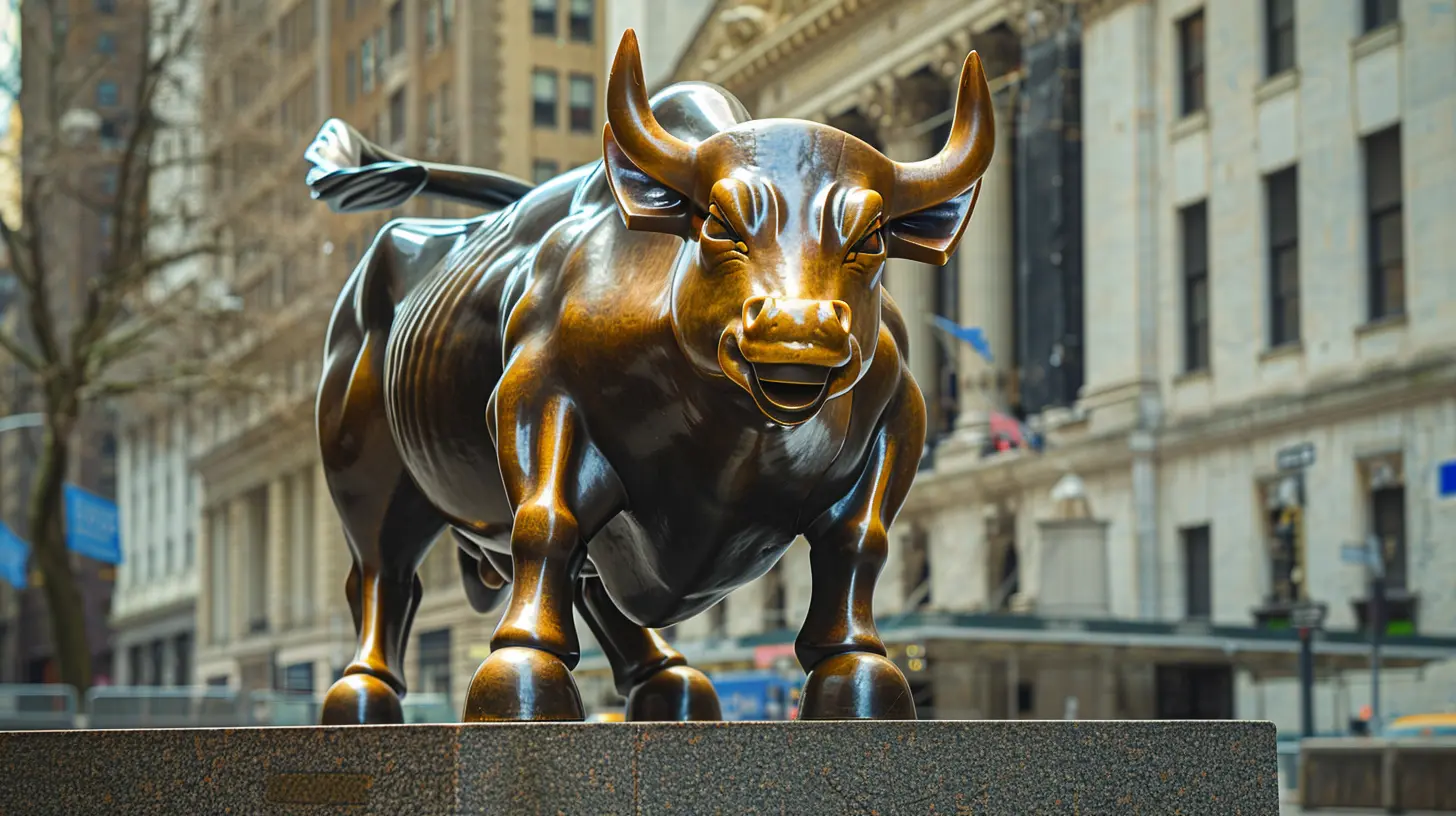17 March 2025
When you hear about the stock market crashing or soaring, what does it really mean for the economy? Is it just a bunch of numbers moving up and down, or is there something deeper going on? Well, that’s where stock market indices come into play. These indices—like the S&P 500, Dow Jones Industrial Average (DJIA), and Nasdaq—serve as more than just financial yardsticks. They can actually tell us a lot about economic confidence.
But how accurate are they? Can the movement of these indices truly predict the economic future? Let’s dive in.

What Are Stock Market Indices?
Before we get into their predictive power, let's break down what stock market indices actually are.A stock market index is essentially a collection of selected stocks that represent a section of the market. Think of it like a playlist that includes songs (stocks) from different genres (industries) to give you a well-rounded musical experience (market outlook).
Some of the most well-known indices include:
- Dow Jones Industrial Average (DJIA): Tracks 30 large, publicly traded U.S. companies.
- S&P 500: Measures the performance of 500 large-cap U.S. stocks, offering a broader market view.
- Nasdaq Composite: Heavily tech-focused, filled with innovative companies.
These indices fluctuate daily, but when looked at over time, they can reveal broader economic trends.

The Link Between Stock Indices and Economic Confidence
So, do stock indices reflect economic confidence? The short answer is yes, but with a few caveats.1. Stock Market as a Leading Indicator
Investors don’t just react to current events—they anticipate the future. When businesses perform well and are expected to grow, stock prices rise. This often signals confidence in the economy’s future health. On the flip side, when uncertainty looms—whether due to inflation, political instability, or global crises—stock prices tend to fall.For example, when COVID-19 first hit in early 2020, markets plummeted due to uncertainty. But as soon as stimulus programs were announced and vaccines were on the horizon, indices surged again, predicting an eventual recovery.
2. Consumer and Business Sentiment
Stock indices don’t just reflect what investors think—they also impact consumer and business sentiment. When stock prices rise, people feel wealthier, businesses are more willing to expand, and consumers spend more money. This creates a ripple effect that fuels economic growth.On the other hand, when stock indices fall, businesses cut costs, hiring slows, and consumer spending decreases—which can lead to economic slowdowns or even recessions.
3. Market Bubbles and Overconfidence
While rising stock indices can be a sign of confidence, they can also indicate overconfidence, leading to bubbles. Remember the dot-com bubble of the late 1990s? Investors piled money into tech stocks, driving indices sky-high—only for the bubble to burst in 2000, sending the economy into a downturn.This happens when stock prices get too detached from actual economic fundamentals—creating an illusion of confidence rather than a true reflection of economic strength.

Can Stock Indices Predict Recessions?
While stock indices can indicate economic trends, they’re not perfect crystal balls. That’s because markets are influenced by many factors, from Federal Reserve policies to geopolitical events.That said, a prolonged stock market decline can often signal an economic downturn. Historically, stock markets tend to dip before a recession officially begins.
Take the 2008 financial crisis as an example. Stock indices dropped significantly months before the official recession started. Investors sensed trouble ahead—bank failures, collapsing housing markets, and mounting debt—and acted accordingly by selling stocks.
A key metric to watch? A bear market—when indices fall 20% or more from their recent highs. This pattern has preceded nearly all major recessions.

The Role of Government and Central Banks
Stock indices don’t operate in a vacuum. When economic confidence starts to waver, governments and central banks step in to stabilize the markets.1. Federal Reserve’s Influence
The Federal Reserve often adjusts interest rates based on stock market performance. If indices start tanking, the Fed may cut interest rates to encourage borrowing and spending. On the other hand, if indices are overheating, they may raise rates to prevent excessive risk-taking.2. Government Stimulus and Fiscal Policies
When stock markets fall sharply, governments may introduce stimulus packages—such as tax cuts, direct payments, or business support programs—to boost spending and restore confidence.For instance, during the 2020 COVID-19 crash, stock markets rebounded quickly once the U.S. government rolled out its multi-trillion-dollar relief packages. This highlights how policy interventions can impact market confidence.
Other Economic Indicators to Watch
While stock indices are useful, they shouldn’t be the only measure of economic confidence. They work best when combined with other key indicators, such as:- Gross Domestic Product (GDP): Measures overall economic output.
- Unemployment Rate: High unemployment usually signals economic distress.
- Consumer Spending: Strong retail sales mean consumers are confident.
- Inflation Rates: Rising inflation can undermine economic stability.
By considering all these factors together, you can get a clearer picture of where the economy is headed.
How Investors Use Stock Indices for Decision-Making
If stock indices are tied to economic confidence, how do investors use them to make informed decisions?1. Identifying Trends
Long-term investors analyze stock indices to spot patterns. If an index consistently trends upward, it may signal a strong economy, making it a good time to invest. If it’s declining, investors might pull back or shift towards safer assets like bonds.2. Adjusting Investment Strategies
During economic downturns, many investors diversify their portfolios—shifting money from high-risk stocks into safer options like gold, bonds, or dividend-paying stocks. When confidence is high, they might take on more risk, investing in growth stocks.3. Timing the Market
Some traders attempt to time the market based on economic trends. For example, if indices show signs of an impending slowdown, they might short-sell stocks or reduce their market exposure. While risky, this strategy can pay off if executed correctly.Final Thoughts
Stock market indices serve as a powerful reflection of economic confidence. They capture investor sentiment, predict trends, and influence everything from government policies to business strategies. However, while they can indicate where the economy is heading, they aren’t foolproof predictors of recessions or booms.So, should you base your entire financial strategy on stock indices? Not entirely. But keeping an eye on these key indicators—alongside other economic data—can give you an edge in understanding financial trends and making smarter investment decisions.







Gideon King
This article insightfully explores the correlation between stock market indices and economic confidence. It highlights how fluctuations in these indices can reflect investor sentiment and broader economic conditions, serving as a crucial barometer for predicting future economic trends. Thought-provoking read!
April 2, 2025 at 6:55 PM